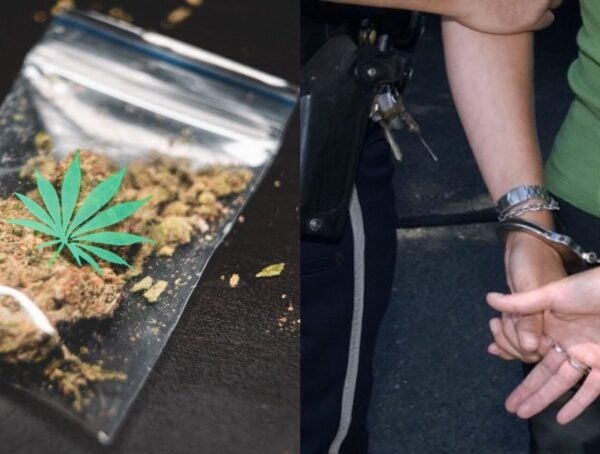Disclaimer: In Real Life is a platform for everyday people to share their experiences and voices. All articles are personal stories and do not necessarily echo In Real Life’s sentiments.
As a Malaysian, you sort of know about ketum (Mitragyna speciose) but you don’t really know that much about it. Imagine my surprise when I was browsing through Reddit and saw it recommended as a “nootropic” – a substance that improves your cognitive abilities.
As far as I knew, ketum was something that I associated with kampungs and rural people (I know, it’s very judgemental, but it’s the assumption I inherited from those around me).
And then ketum made the local news! 4 policemen in Bangi were caught throwing a boozy karaoke party with disco lights. They had 5 bottles of air ketum on them as well.
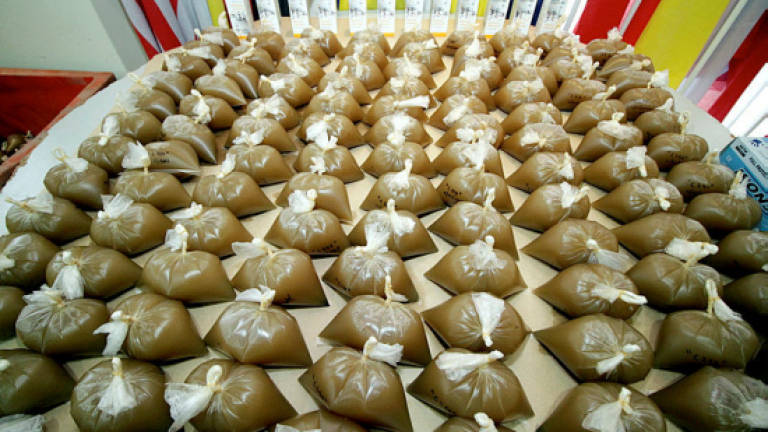
Why are Westerners obsessed with it?
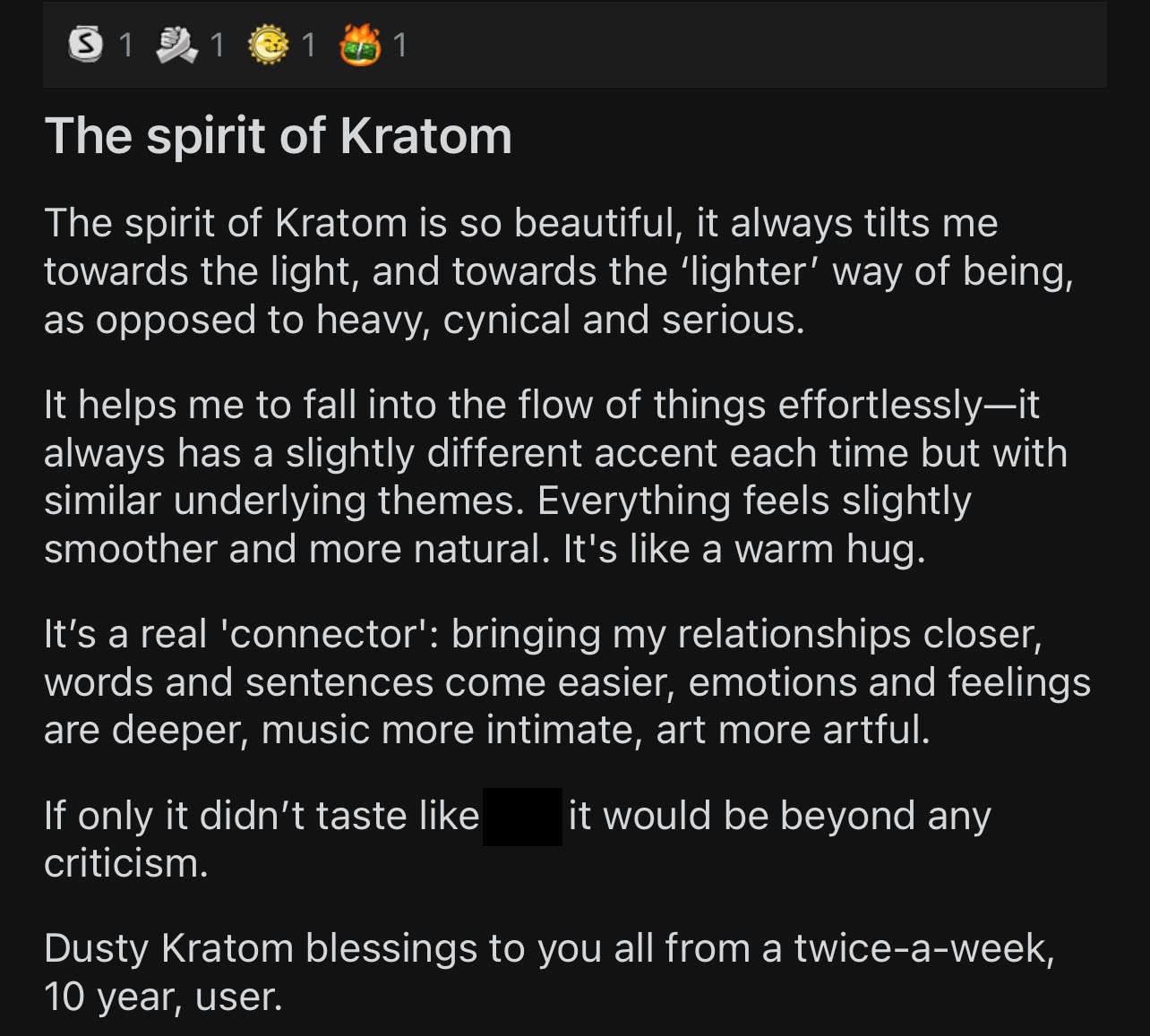
They mostly call it “kratom” as their supply is mainly from Thailand and Indonesia. In 2016 data showed that 400 tonnes of ketum is exported to the US from South East Asia monthly, and that the industry was worth RM 529 million annually and is set to increase every year.
Westerners love it because ketum helps in dealing with addiction, for those who are trying to wean themselves off any sort of addiction. Some use it to quit smoking or drinking, others use it to reduce their dependence on harder drugs. Ironically, ketum itself is habit forming and can lead to addiction.
They’ve even organised petitions and meet-ups to protest any action towards making it illegal!
Ketum is a sedative in low doses, but it acts as a stimulant at high doses. This gives it a sense of versatility, especially when you consider how cheap it is.
Some use it for chronic pain that comes with disabilities and health conditions because they think it’s safer and cheaper than painkillers, especially strong painkillers that can be addictive. Others use it to self medicate mental health issues or learning disabilities. Those who suspect they have ADHD turn to it for its ability as a stimulant – ADHD brains are usually deprived of stimulation and ADHD medication is expensive.

A subreddit is dedicated to disseminating information on kratom, from how to use and consume it to side effects you could experience. The users of this subreddit are firm advocates of ketum, with many claiming that using it has become a part of their daily routine and that it has been life-changing.
Much like with cannabis, users swear by different strains: a firm opinion is that red and white blends are superior to green strains.
However, according to current Malaysian laws, ketum is illegal to possess, import, export, manufacture and sell.
Guilty parties can expect to face imprisonment of up to 4 years and/or a fine of up to RM10,000.

It is usually found in abundance in the wild, and FELDA areas are known to be a hotspot as FELDA settlers tend to plant it. They have been warned by the police that their settlers rights could be taken away if they continue to plant it, and trees are cut down when they are discovered.
Along with cannabis, Syed Saddiq is leading a bipartisan parliamentary caucus studying its medicinal effects, formulating policies and harm reduction strategies.
What is ketum exactly? Is it like marijuana?
Ketum is part of the coffee family and it’s a plant indigenous to Thailand, Indonesia, Malaysia and Papua New Guinea. It has been used as a traditional form of herbal medicine, to buang angin and ease chronic pain. It’s also great for stimulating energy levels.
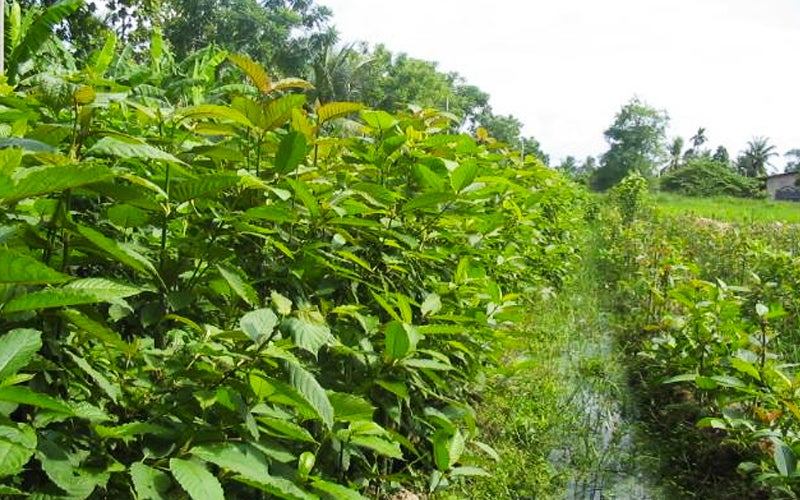
However, taking it in higher doses does allow you to experience its psychoactive effects, giving users a brief feeling of euphoria.
Ketum can be taken as a drink and its leaves can be chewed, but enterprising people also sell it in capsule form.
Many Malaysians are calling for it to be legalised, though.
Some recognise that the plant could be good for business, considering its demand in the US and Europe. Indonesian businesses already make a decent profit by establishing dealers in the US and Malaysians are keen to get in on the action.
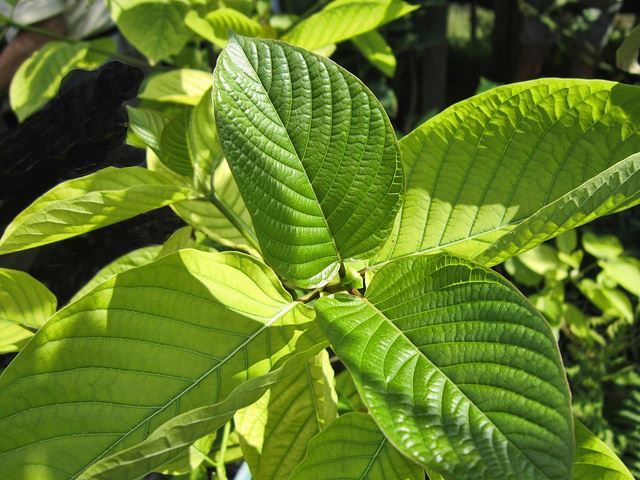
Malaysians have pointed out that ketum grown in Malaysia is often smuggled to Thailand and then exported out as Thai kratom. They have drawn distinctions between using ketum as a health aid and the abuse of the substance.
The issue of ketum has always been a hotly debated concern, but it’s interesting to watch Malaysia progress as a nation with its changing views on topics that used to be considered taboo.
We can only hope that these changes form the evidence of an increasingly tolerant and socially informed society.
For more stories like this, read: I Was Busted with Drugs in Indonesia: Here’s My Story.
You might also like
More from Real People
‘A RM100 fee cost a company 5 years of revenue’ shares M’sian
This story is about a Malaysian who learned that bureaucracy can be defeated simply by not arguing with it.A billing …
‘I quiet-quit, upskilled, and tripled my salary,’ shares M’sian engineer
This story is about a Malaysian who learned that loyalty without leverage leads nowhere in the corporate world.After years of …
‘I did everything right, and it still wasn’t enough’ shares M’sian graduate
This story is about a Malaysian graduate navigating big dreams in a job market where a degree no longer guarantees …







